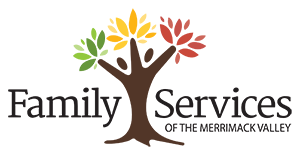Casa In Action

An Extra Set of Eyes Made a Difference for Baby M
Baby M was removed from his parents and placed with a relative after his mother tested positive for drugs after giving birth, and she and the father were unable to keep the baby safe. After several months, during one of CASA’s interviews with Baby M’s parents, CASA learned that they were worried about the placement, because of the relative’s possible drug use, hostile text messages, and refusal to allow the child to have court-ordered visits with the parents. The relative was also hostile to the CASA volunteer.
In the CASA report to the judge, the CASA volunteer documented these observations and recommended that DCF re-think the placement with relatives. This prompted a court-ordered appearance for the relative with the child, where the relative displayed violent language and gestures toward the judge, the parents, and the CASA volunteer, prompting the bailiff to intervene. The CASA volunteer was called to testify about her interactions with the relatives, and the judge removed the baby from the relative’s care, as this was clearly not an appropriate home for the baby.
Baby M was then placed in a foster home while his parents worked on their DCF tasks. Fortunately, his parents worked hard to complete their tasks and keep their sobriety and were later reunified with Baby M.
Providing Consistency to Siblings in Foster Care
Shelley, a 6-year CASA volunteer, didn’t shy away from taking on a complex CASA case that involved three young children who had been in and out of foster homes most of their lives. When the Covid-19 pandemic hit, Shelley found creative ways to continue her connection with the children – all of whom were in different living situations. From phone calls, virtual activities and crafts, Shelley was determined to keep a strong connection with each child.
Shelley knows that over the last six years, she has been the one constant in the lives of these children. She can remind them of the obstacles they have overcome, celebrate their successes and share in their histories. And when one of the children smiles when they see her or hears her voice, she knows she is making a difference.
Providing a Lifeline to Brothers in Group Care during the Lonely Pandemic
Mary was a new advocate who completed training just as the Covid-19 pandemic broke out in March 2020. She took her case in the summer of 2020, in the height of the pandemic. Mary works with two teenage brothers who had been physically abused and neglected and had a long history of placements. One of the boys had just arrived at a group care facility after having been on the run for many months. The younger boy had already been at the same facility for 6 months. Since the summer of 2020, Mary has developed a close relationship with the boys, visiting the boys as often as possible, despite the quarantines that resulted from covid breakouts at the program. Through the One Wish Project, Mary provided the boys with special birthday celebrations, something that neither boy had experienced growing up. When they are having a bad day, Mary will drop by with pizza or Chinese food, letting them know that someone cares. Learning the ropes as she goes along with managing extreme situations due to Covid, Mary has done what CASA strives to do – being there and speaking up for vulnerable children.
